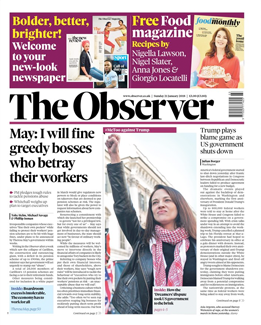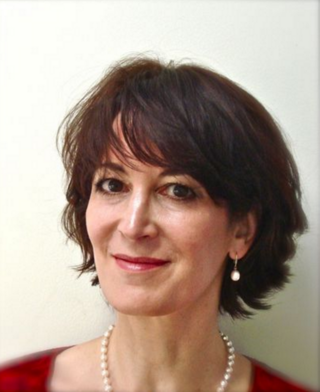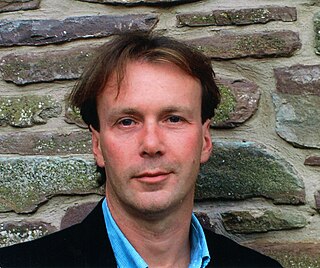Related Research Articles

The Observer is a British newspaper published on Sundays. It is a sister paper to The Guardian and The Guardian Weekly, having been acquired by their parent company, Guardian Media Group Limited, in 1993. In December 2024, a deal was announced to sell the paper to Tortoise Media. First published in 1791, it is the world's oldest Sunday newspaper.

Granta is a literary magazine and publisher in the United Kingdom whose mission centres on its "belief in the power and urgency of the story, both in fiction and non-fiction, and the story's supreme ability to describe, illuminate and make real." In 2007, The Observer stated: "In its blend of memoirs and photojournalism, and in its championing of contemporary realist fiction, Granta has its face pressed firmly against the window, determined to witness the world."

The New Statesman is a British political and cultural news magazine published in London. Founded as a weekly review of politics and literature on 12 April 1913, it was at first connected with Sidney and Beatrice Webb and other leading members of the socialist Fabian Society, such as George Bernard Shaw, who was a founding director. The longest-serving editor was Kingsley Martin (1930–1960), and the most recent editor was Jason Cowley, who assumed the post in 2008 and left in 2024.

Nicholas Cohen is a British journalist, author and political commentator. He was a columnist for The Observer, and is one for The Spectator. Following accusations of sexual harassment, he left The Observer in 2022 and began publishing on the Substack platform.

Alice Priscilla Lyle Oswald is a British poet from Reading, Berkshire. Her work won the T. S. Eliot Prize in 2002 and the Griffin Poetry Prize in 2017. In September 2017, she was named as BBC Radio 4's second Poet-in-Residence, succeeding Daljit Nagra. From 1 October 2019 until 30 September 2023, she was the Oxford Professor of Poetry.

John Carey is a British literary critic, and post-retirement (2002) emeritus Merton Professor of English Literature at the University of Oxford. He is known for his anti-elitist views on high culture, as expounded in several books. He has twice chaired the Booker Prize committee, in 1982 and 2003, and chaired the judging panel for the first Man Booker International Prize in 2005.
Vitali Vitaliev is a Ukrainian-born journalist and writer who has worked in Russia, the United Kingdom, Australia and Ireland.

The Lady is one of Britain's longest-running women's magazines. It has been in continuous publication since 1885 and is based in London. It is particularly notable for its classified advertisements for domestic service and child care; it also has extensive listings of holiday properties.

Jason Matthew Rayner is a British journalist and food critic. He worked as a freelance journalist for newspapers including The Observer and The Independent on Sunday. He was the Observer restaurant critic from 1999 until 2024, when he joined the Financial Times. Rayner is a judge on the British version of the cooking show MasterChef and has written several novels.

Fraser Andrew Nelson is a British political journalist who was editor of The Spectator magazine from 2009 to 2024.
Charles Mark Edward Boxer was a British magazine editor and social observer, and a political cartoonist and graphic portrait artist working under the pen-name ‘Marc’.
Nikita Lalwani FRSL is a novelist born in Kota, Rajasthan and raised in Cardiff, Wales. Her work has been translated into sixteen languages.
Andrew Brown is an English journalist, writer, and editor. He was one of the founding staff members of The Independent, where he worked as a religious correspondent, parliamentary sketch writer, and a feature writer. He has written extensively on technology for Prospect and the New Statesman and been a feature writer on The Guardian. He has worked as the editor for the Belief section of The Guardian's Comment is Free, which won a Webby under his leadership, and is currently a leader writer and member of the paper's editorial board. He is also the press columnist of the Church Times. In The Beginning was the Worm (2004) was shortlisted for the Aventis Prize. Fishing in Utopia (2008) won the Orwell Prize and was nominated for the Dolman Best Travel Book Award in 2009.

Jenni Cecily Russell is a British journalist and broadcaster. She is a columnist for The Times, a contributing writer for The New York Times, and a book reviewer for The Sunday Times. She has been a columnist for The Guardian and written the political column for London Evening Standard.

John Lewis-Stempel is an English farmer, writer, and Sunday Times Top 5 best selling author.

Laurie Penny is a British journalist and writer. Penny has written articles for publications including The Guardian,The New York Times and Salon. Penny is a contributing editor at the New Statesman and the author of several books on feminism, and they have also written for American television shows including The Haunting of Bly Manor and The Nevers.
Maya Jaggi is a British writer, literary critic, editor and cultural journalist. In the words of the Open University, from which Jaggi received an honorary doctorate in 2012, she "has had a transformative influence in the last 25 years in extending the map of international writing today". Jaggi has been a contributor to a wide range of publications including The Guardian, Financial Times, The Independent, The Literary Review, The Times Literary Supplement, The New York Review of Books, The Wall Street Journal, The Economist, New Statesman, Wasafiri, Index on Censorship, and Newsweek, and is particularly known for her profiles of writers, artists, film-makers, musicians and others. She is also a broadcaster and presenter on radio and television. Jaggi is the niece of actor and food writer Madhur Jaffrey.
Owen Matthews is a British writer, historian and journalist. His first book, Stalin's Children, was shortlisted for the 2008 Guardian First Book Award, the Orwell Prize for political writing, and France's Prix Médicis Etranger. His books have been translated into 28 languages. He is a former Moscow and Istanbul Bureau Chief for Newsweek.

Nesrine Malik is a Sudanese-born journalist and author of We Need New Stories: Challenging the Toxic Myths Behind Our Age of Discontent. Based in London, Malik is a columnist for The Guardian and served as a panellist on the BBC's weekly news discussion programme Dateline London.
Gaby Wood, Hon. FRSL, is an English journalist, author and literary critic who has written for publications including The Observer, The Daily Telegraph, London Review of Books, Granta, and Vogue. She is the literary director of the Booker Prize Foundation, appointed in succession to Ion Trewin and having taken over the post at the conclusion of the prize for 2015.
References
- ↑ Phillips, Charlotte (23 December 2024). "Jason Cowley has joined The Sunday Times". News UK. Retrieved 24 December 2024.
- 1 2 3 4 "Cowley, Jason, (born 19 June 1965), journalist, magazine editor and writer; Editor-in-chief, New Statesman, since 2018 (Editor, 2008–18) | WHO'S WHO & WHO WAS WHO". www.ukwhoswho.com. doi:10.1093/ww/9780199540884.013.U250243. ISBN 978-0-19-954088-4 . Retrieved 31 December 2019.
- ↑ Cowley, Jason (1 August 2002). "Down Town". The Guardian. Retrieved 9 November 2014.
- ↑ Robinson, James (27 April 2009). "A new kind of Statesman". The Guardian. Retrieved 9 November 2014.
- ↑ "About Us". The AKO Caine Prize.
- 1 2 Lo Dico, Joy (25 May 2008). "A 'New Statesman' kind of guy. Just not New Labour". The Independent. London. Retrieved 30 November 2009.
- ↑ Cowley, Jason (19 June 2000). Unknown Pleasures . London: Faber and Faber. ISBN 0-571-20233-0.
- ↑ Cowley, Jason (6 April 2009). The Last Game: Love, Death and Football at the End of the Eighties. Simon & Schuster. ISBN 978-1-84737-185-0.
- ↑ Brook, Stephen (16 May 2008). "Cowley named as New Statesman editor". The Guardian. London. Retrieved 30 November 2009.
- ↑ Burrell, Ian (29 November 2015). "Why the left-wing New Statesman is stubbornly resisting the lure of Corbynmania". The Independent on Sunday. London. Retrieved 10 June 2017.
- ↑ "The Best of the New Statesman: Essential Reading". New Statesman. 9 April 2020.
- ↑ Ponsford, Dominic (22 November 2024). "Jason Cowley bowing out after 16 years as New Statesman editor". Press Gazette. Retrieved 24 December 2024.
- ↑ Preston, Peter (15 November 2009). "Jason Cowley: big fish at the BSME awards". The Observer. London. Retrieved 30 November 2009.
- ↑ "New Statesman editor wins at BSME awards". New Statesman. London. 11 November 2009. Retrieved 30 November 2009.
- ↑ "New Statesman editor Jason Cowley shortlisted as Editor of the Year in the PPA Awards". New Statesman. 26 April 2010. Retrieved 27 April 2010.
- ↑ "2011 BSME Award Winners". BSME News. 11 November 2011. Retrieved 14 December 2011.
- ↑ "Britain's 500 most influential". The Sunday Times. 24 January 2016.
- ↑ "New Statesman wins Current Affairs and Politics Magazine and Cover of the Year at BSME Awards". New Statesman. 12 February 2020. Retrieved 12 February 2020.
- ↑ "The Orwell Prizes 2019: Shortlists Announced". The Orwell Foundation. 10 June 2019. Retrieved 30 June 2020.
- ↑ Peet, Mal (11 April 2009). "When football died". The Guardian. Retrieved 22 August 2019.
- ↑ Salt. "Reaching for Utopia: Making Sense of An Age of Upheaval". Salt. Retrieved 21 May 2020.
- ↑ "Editor's Note: The gift of Statesmanship at Christmas, that election leader and free thinking in dark times". www.newstatesman.com. 11 December 2019. Retrieved 21 May 2020.